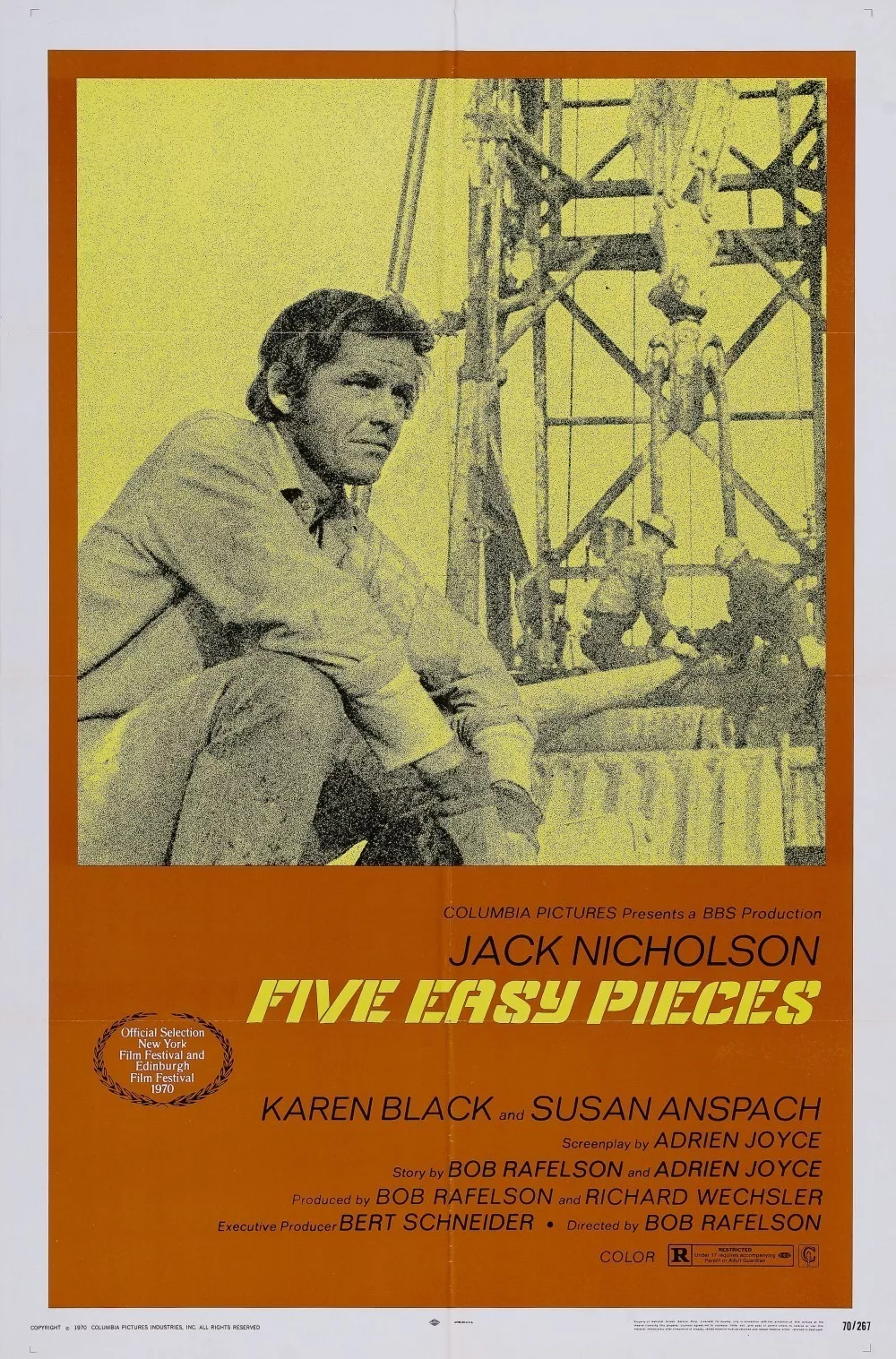The title of “Five Easy Pieces” refers not to the women its hero makes along the road, for there are only three, but to a book of piano exercises he owned as a child. The film, one of the best American films, is about the distance between that boy, practicing to become a concert pianist, and the need he feels twenty years later to disguise himself as an oil-field rigger. When we sense the boy, tormented and insecure, trapped inside the adult man, “Five Easy Pieces” becomes a masterpiece of heartbreaking intensity.
At the outset, we meet only the man — played by Jack Nicholson with the same miraculous offhandedness that brought “Easy Rider” to life. He’s an irresponsible roustabout, making his way through the oil fields, sleeping with a waitress (Karen Black) whose every daydreaming moment is filled with admiration for Miss Tammy Wynette. The man’s name is Robert Eroica Dupea. He was named after Beethoven’s Third Symphony and he spends his evenings bowling and his nights wearily agreeing that, yes, his girl sings “Stand By Your Man” just like Tammy.
In these first marvelous scenes, director Bob Rafelson calls our attention to the grimy life textures and the shabby hopes of these decent middle Americans. They live in a landscape of motels, highways, TV dinners, dust, and jealousy, and so do we all, but they seem to have nothing else. Dupea’s friends are arrested at the mental and emotional level of about age seventeen; he isn’t, but thinks or hopes he is.
Dupea discovers his girl is pregnant (his friend Elton breaks the news out in the field, suggesting maybe it would be good to marry her and settle down). He walks out on her in a rage, has a meaningless little affair with a slut from the bowling alley, and then discovers more or less by accident that his father is dying. His father, we discover, is a musical genius who moved his family to an island and tried to raise them as Socrates might have. Dupea feels himself to be the only failure.
The movie bares its heart in the scenes on the island, where Dupea makes an awkward effort to communicate with his dying father. The island is peopled with eccentrics, mostly Dupea’s own family, but including a few strays. Among their number is a beautiful young girl who’s come to the island to study piano with Dupea’s supercilious brother. Dupea seduces this girl, who apparently suggests the early life he has abandoned. He does it by playing the piano; but when she says she’s moved, he says he isn’t — that he played better as a child and that the piece was easy anyway.
This is possibly the moment when his nerve fails and he condemns himself, consciously, to a life of self-defined failure. The movie ends, after several more scenes, on a note of ambiguity; he is either freeing himself from the waitress or, on the other hand, he is setting off on a journey even deeper into anonymity. It’s impossible to say, and it doesn’t matter much. What matters is the character during the time covered by the film: a time when Dupea tentatively reapproaches his past and then rejects it, not out of pride, but out of fear.
The movie is joyously alive to the road life of its hero. We follow him through bars and bowling alleys, motels and mobile homes, and we find him rebelling against lower-middle-class values even as he embraces them. In one magical scene, he leaps from his car in a traffic jam and starts playing the piano on the truck in front of him; the scene sounds forced, described this way, but Rafelson and Nicholson never force anything, and never have to. Robert Eroica Dupea is one of the most unforgettable characters in American movies.



















